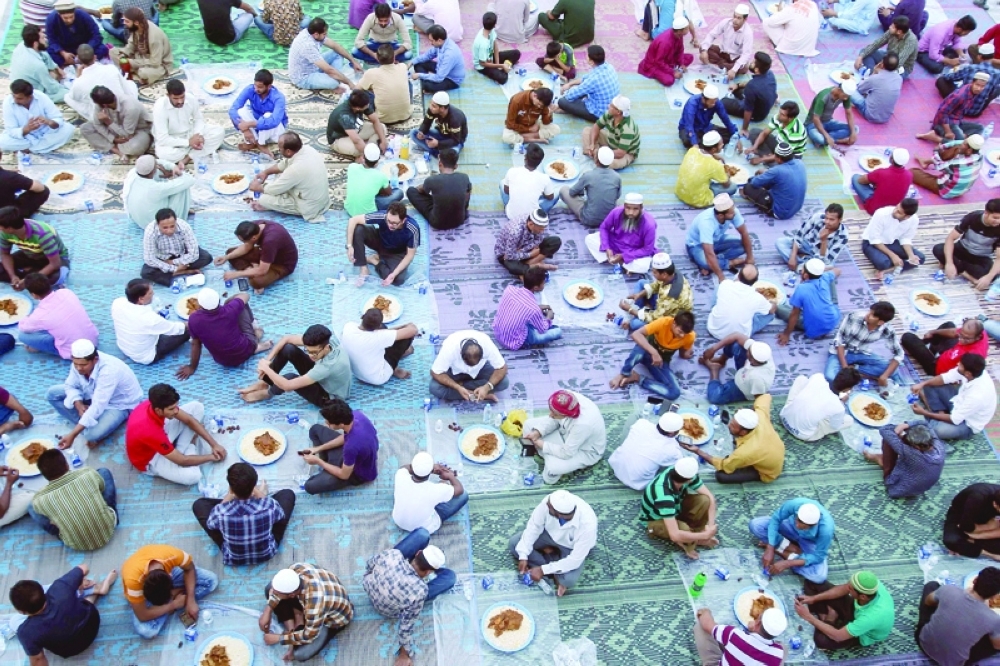

I was recently asked whether Ramadhan is as relevant today as it has always been for the Islamic faith. I answered that ‘as the faith is still strong, I guess the answer lies in its purpose,’ and my following thought was, “What’s not to like about reflection?”
Reflection, taking the time to think about what we have done, and what we will do, is, I understand, a key part of the Ramadhan experience, as a believer is asked to demonstrate self-control and restraint in all things; to demonstrate compassion for, and mindfulness of, those who suffer from a paucity of food and water, and their circumstances; to regard the month of Ramadhan as an opportunity for physical and spiritual cleansing and renewal. That remarkable artist, Claude Monet, observed that it is the strength of our observations and reflections that we ‘find a way,’ and in that brief exhortation offered a small window to his own impressionist reflections, and the beauty they have wrought upon a transformed artistic landscape. He created not only a new and different way to paint, but a unique way for the beauty of the world to be seen.
A former student of mine, Anwar, now in the USA, explained once that “Not eating or drinking, the things non-Muslims focus on, are only one part of the Ramadhan experience, this tiny sacrifice and inconvenience rightly compelling us to be more thoughtful and compassionate about others, especially those who are suffering or in need.” She was being quite thoughtful and unselfish, because Ramadhan had impacted upon her, and her peers’ exams experience significantly, so to be thinking of others while under her own pressures indicated a maturity and clarity of thought, perhaps attributable to this contemplative time.
Iman, in India, always finds the first few days the hardest, as she works in a large multi-cultural office environment. “Being in the same place with people who take their coffee breaks as normal is a bit of a pain. It’s not that anyone is antagonistic or anything like that, but to be honest, when someone brings in donuts for their birthday ‘shout,’ or something like that, I honestly would ‘die’ for just a little bite,” she laughed. “But it’s all part of it, isn’t it?” She explained that once she settled into a routine it was all ‘easy as pie,’ and that living in a big city, seeing many people homeless and in need, her Islamic obligations were tangible, so easy to deal with. “Just being a Muslim in this environment is challenging, but sharing Ramadhan with billions of others, almost makes it easier.”
Another working away from home, in Australia, is Mohammed. He has only a small Islamic community to bond with in the Northern Territory, but depends upon them, as the time differences with his family are almost totally different. He said he gets confused during Ramadhan, but does manage to stay in touch, and this year intends to return home for the Eid, to make up for the somewhat disjointed last three years. More importantly though, he definitely feels that both “Personally, and in my faith, I am a better man for being tested,” as he has, and is looking forward to both Ramadhan and the Eid.
Finally, William is a European Muslim, a convert: “This religion has changed me,” he said. “I was selfish, stupid, and was so self-centred. I took drugs, stole from my parents, and thought the world owed me a living. I found Islam in prison, and though people tell me I am a better man now, I don’t need to hear it because I have the certainty of my faith. Ramadhan is a time to reflect upon the life I have found, and to understand how I can change others’ lives too. I see my old self in so many others, and my prayer and deliberation gives me the strength to take the Prophet’s name to dark places, knowing I am safe, sure of the message of the Holy Quran.”
Ramadhan then, does appear to be globally relevant, and sustainable. Certainly, it appears as strong and resilient as ever. Ramadhan Mubarak.
Oman Observer is now on the WhatsApp channel. Click here



